Covid-19 Workplace Response Plan
South Africans have been living in lockdown since 26 March when President Cyril Ramaphosa declared a Covid-19 state of disaster. This followed in the footsteps of countries worldwide, all hard-hit by the pandemic. Since then, South Africa has moved from Level 5 to 4 and is now on the verge of further relaxations when entering Level Three at the end of May. However, business owners will have to be more vigilant than in the past, because the return of millions of more people into the workplace will increase the danger of contamination by the virus.
Covid-19 workplace response plans will play a major role in preventing the spread of the coronavirus. Employers can take a leaf from the response plan developed by AECI, a large South African chemical manufacturer, which has appointed a task team to handle its Covid-19 operations. Their strategy is to prevent and minimise the spread of Covid-19 while making sure that the business operates as usual.
Synopsis of Covid-19
Covid-19 is spread when an infected person coughs, sneezes or exhales. Much like influenza, airborne droplets land on surfaces where they can survive for up to nine days. Anyone who touches the contaminated surface, and then touches their face, can become infected with the virus. They can also become infected by a Covid-19 sufferer standing within one metre and who exhales droplets. Symptoms will appear between two to 14 days after infection.
Workplace Response Plan
- Appoint a task team to oversee all Covid-19 operations
- Introduce measures to and identify and treat affected workers
- Send affected workers home to self-isolate or to undergo medical treatment
- Set up hygiene stations at which water and soap is available for regular handwashing
- Provide hand sanitizers with a 70% alcohol base and disposable towels
- Prohibit personal contact, such as shaking hands
- Introduce a daily disinfection cleaning regime of all work surfaces and devices touched by workers, including items on the premises like doorknobs and drawer handles
- Undertake daily screening of employees to detect Covid-19 symptoms
- Prepare the workplace for social distancing between employees and customers
- Encourage a work-from-home programme and the use of telecommunications, such as Zoom and Skype
- Educate workers about Covid-19 health and safety precautions, such as the etiquette of preventing the spread of germs when coughing and sneezing
- Display easy-to-understand Covid-19 do-and-don’t posters at strategic points throughout the workplace
- Where possible, introduce staggered working hours, or a rotational shift system, to reduce the number of employees on the worksite
Risks and Hazards
For many industries, Level 3 heralds a return to full production. This leaves employers with little time to dedicate to other tasks, like addressing Covid-19 risks and hazards. In the face of the pandemic, businesses that have been idle or operating at reduced production levels have to address the Occupational Health and Safety Act 85 of 1993 Covid-19 compliance requirements.
Risk assessments must be conducted as a matter of urgency. Adhering to the adage of “time is money”, employers should look no further than OHS specialists, MAKROSAFE, to help them through this trying period in the country’s history. MAKROSAFE risk assessors help employers to identify risks in the workplace that pose threats to the health and safety of workers. Working according to set protocols, the assessors then implement measures to control each risk.
Employers have a legal obligation to protect the health and safety of their workers, or outside contractors and customers visiting the premises.
COVID-19 risk assessments require:
- Identifying employees with the highest Covid-19 risk because of their occupation
- Providing those employees with Covid-19 education and training
- Providing employees with PPE (Personal Protective Equipment)
- Introducing social distancing between workers and customers
MAKROSAFE monitors and re-evaluates risks and hazards every three months and clients are regularly briefed about problems in the workplace.
Covid-19 Prevention
MAKROSAFE has made an invaluable contribution to the fight against the spread of the coronavirus pandemic. It has developed a Back to Work Covid-19 Prevention Kit available online at no cost to business owners. Armed with this manual, employers are given all the tools necessary to ensure the safety of their workplace.
The Covid-19 Prevention Kit includes the following information:
- Covid-19 Policy
- Personal Protective Equipment (PPE) Policy
- Testing and screening employees to meet the COVID-19 compliance Policy
- A Working from Home Policy
- A Working from Home Risk Assessment
- Assessing the risks posed to workers using public transport to travel between their residence and the workplace
- Assessing workplace risks of Covid-19 exposure, including other infectious diseases
- Workplace Readiness
- Control measures Guidelines
- E-Learning – a tutorial on how to manage infectious diseases in the workplace
- An Induction Booklet
- Toolbox Talks
- Awareness Posters
- Daily Mandatory Checklists
Assessing this information, employers will realise that Covid-19 policies can change daily, depending on the severity of infections throughout the country. MAKROSAFE’s online Prevention Kit is updated every 24-hours, keeping employers up-to-date with the latest information and requirements.
ms of the virus and daily disinfection of all working surfaces and objects handled by workers.
The cherry on the top of the free Covid-19 Workplace Prevention Kit is that MAKROSAFE is also offering employees a free 20-minute face-to-face consultation via Zoom or Skype. Business owners can use this opportunity, with no strings attached, to discuss workplace problems involving Covid-19 risks and hazards. MAKROSAFE’s highly trained and qualified professional assessors will advise business owners and suggest plans of action to overcome any hurdles.


Comments (1)
Informative Blog.Personal Protective Equipment (PPE) Policy
2022-10-29 12:43:53